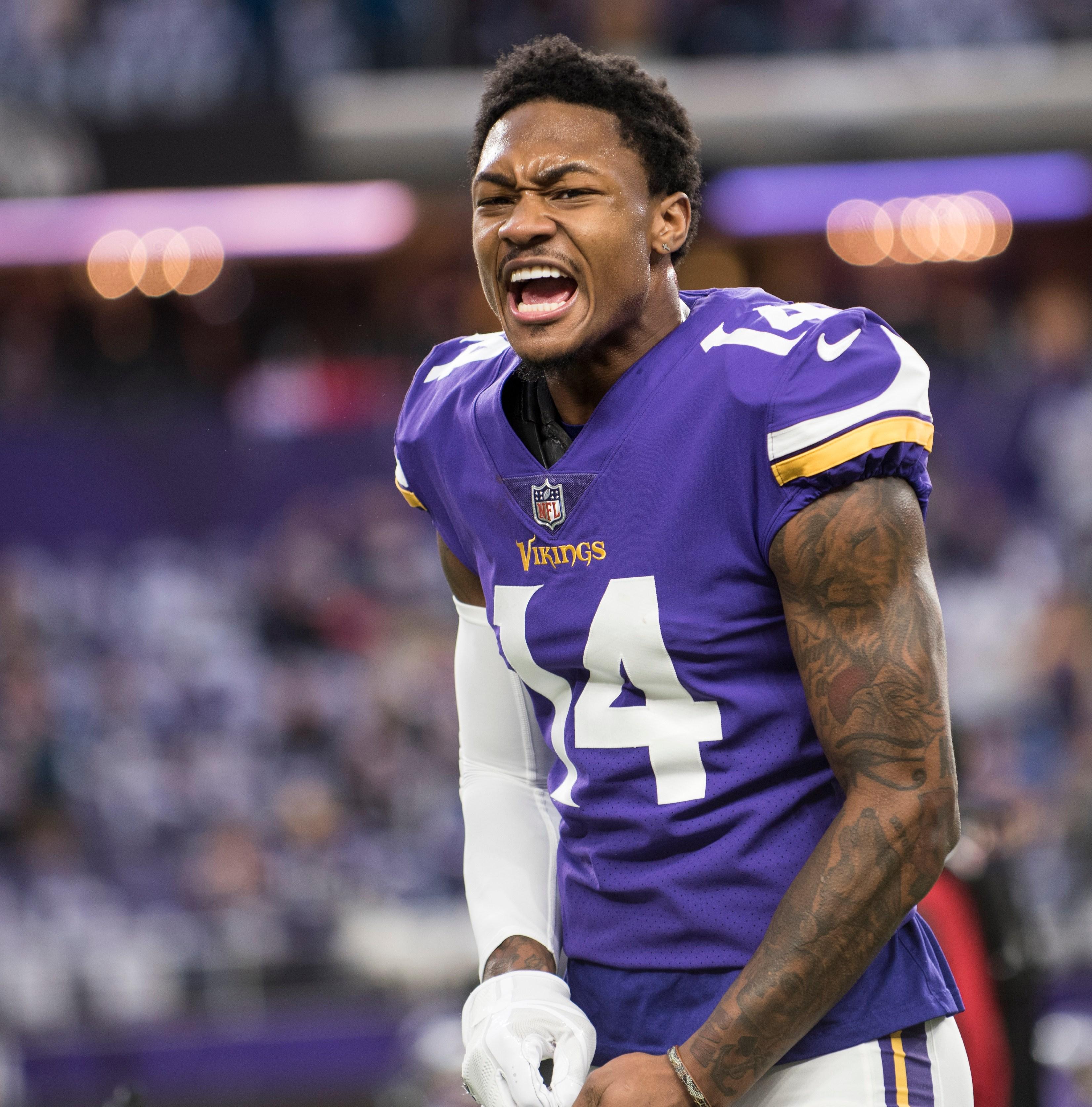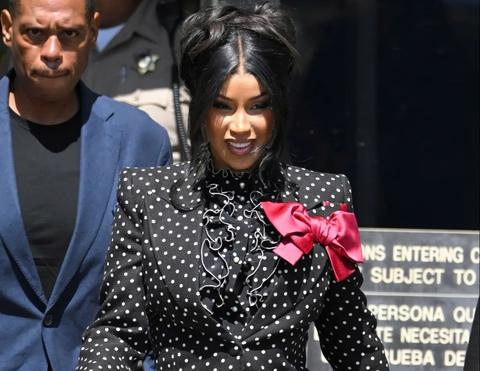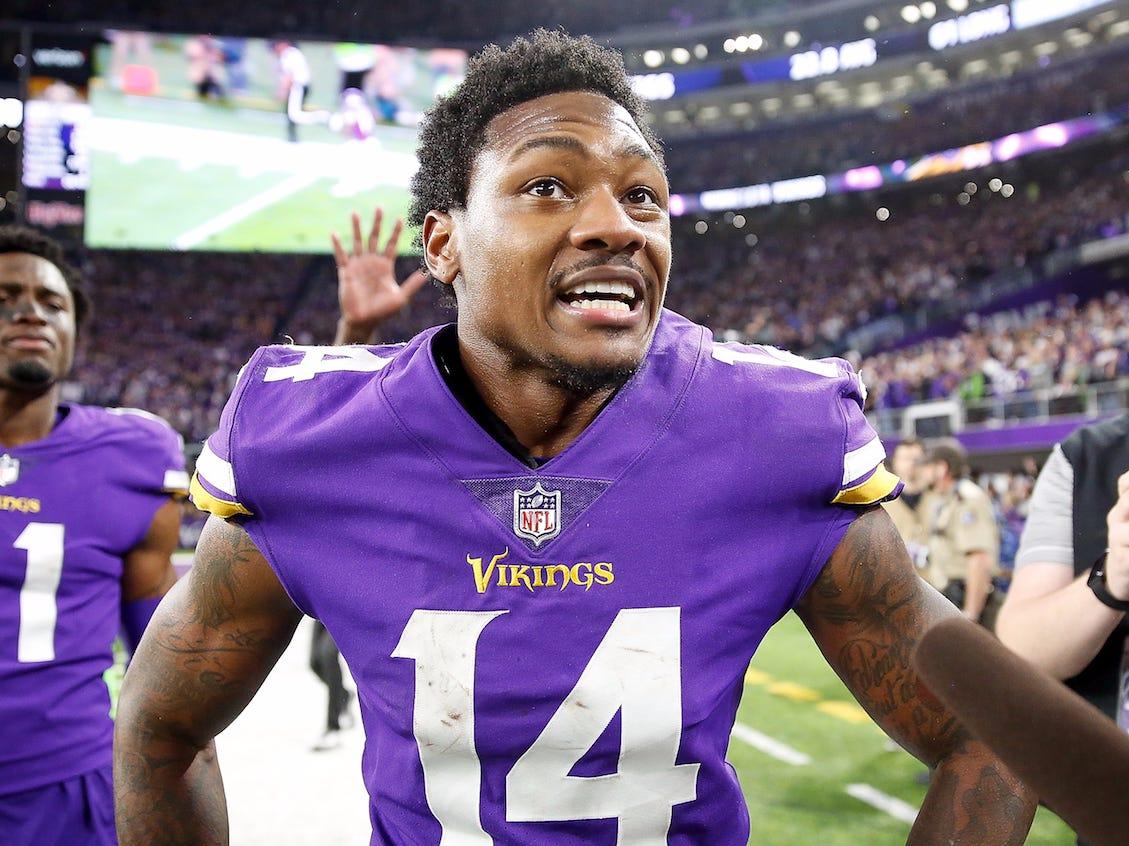The crowd was deafening. The clock was ticking down. The Buffalo Bills trailed by four points in what many are calling one of the most nerve-shredding games of the NFL season. Under the bright stadium lights, Stefon Diggs stood on the sideline, drenched in sweat, breathing heavily, and staring at the scoreboard as if time itself had frozen.
The Bills needed a miracle — and Diggs, their emotional heartbeat, was about to deliver one.
What no one knew at that moment, however, was that behind the calm mask of an elite athlete, Diggs’ mind wasn’t on statistics or strategy. It was on her — someone who had quietly become his anchor through chaos, heartbreak, and the brutal grind of football life.
“I thought of her and kept fighting,” Diggs later confessed in a post-game interview that sent shockwaves through the NFL community. Those nine words became an instant headline — printed, shared, and repeated across social media, igniting speculation and admiration from millions of fans.
It was the final quarter against the Kansas City Chiefs — a battle of giants, a clash of legacies. The Bills’ offense had sputtered under relentless pressure. With less than a minute left on the clock, quarterback Josh Allen launched a desperate play call: “Diggs left, slant and go.”
The stadium roared. The tension was electric. Everyone knew — this was it.
As Allen took the snap, Diggs exploded from the line, cutting sharply, his cleats tearing into the turf. A defender shadowed him step for step. For a split second, it looked hopeless. Then came the pass — a high spiral, threading through chaos. Diggs leapt, defying gravity, and somehow — somehow — clutched the ball mid-air before crashing into the end zone.
The crowd went berserk. His teammates mobbed him. But amid the celebration, cameras caught something unusual — Diggs, eyes closed, head tilted slightly toward the sky, whispering something no one could hear.
Later, we’d find out what he said.
After the game, reporters packed into the locker room. Diggs looked exhausted, his voice hoarse but steady. When asked what had kept him going in those final, punishing moments, his answer stunned everyone.
“I thought of her,” he said softly. “When everything hurts, when your body’s giving up, sometimes you don’t play for stats or fame — you play for someone who reminds you why you started.”
The room fell silent. Then a reporter pressed, “Who is she?”
Diggs just smiled, the corners of his eyes glinting with something between pride and nostalgia. “Let’s just say she’s the reason I don’t quit — on or off the field.”
That was all it took. Within hours, social media erupted. Hashtags like #ForHer, #DiggsLove, and #NeverQuit began trending worldwide. Fans speculated wildly — was he talking about Cardi B, his rumored former flame? A childhood sweetheart? His mother?
No one knew for sure. But one thing was undeniable: the sincerity in his tone had struck a universal chord.
Sources close to Diggs later revealed that “her” was not just one person, but a symbol — a mix of personal loss, love, and purpose. Last year, Diggs quietly funded a community center in Maryland dedicated to his late grandmother, who had encouraged his football dreams when no one else believed in him.
“She used to say, ‘When the world gets heavy, run faster,’” Diggs once shared. “I carry that with me every game.”
Insiders say that Diggs had recently visited the center, meeting with children who reminded him of his younger self — determined, struggling, full of hope. That emotional visit reportedly fueled his mindset going into this season.
“When he said he thought of her, he was channeling every bit of love and loss that made him who he is,” said a close friend. “It wasn’t about fame. It was about remembering why he fights.”
NFL players and celebrities alike flooded social media with reactions. Patrick Mahomes tweeted, “Respect. That’s what greatness sounds like.” Meanwhile, Cardi B, never one to stay silent, posted a cryptic heart emoji followed by the words, “Some fights come from love 
Sports analysts praised Diggs not just for his athleticism, but for his emotional vulnerability. “He’s redefining what it means to be a leader,” said ESPN commentator Mike Greenberg. “Diggs isn’t afraid to show that toughness and heart can coexist.”
For Diggs, the moment was more than a comeback victory — it was a statement. A reminder that behind every roar of the crowd and every touchdown celebration, there’s a human story.
In the days that followed, Diggs’ words became a rallying cry for fans facing their own struggles. Thousands shared their stories online, using #IThoughtOfHer to describe moments when they found strength through love, memory, or hope.
“It’s wild,” Diggs said in a later interview. “I just spoke from the heart. I didn’t think it would mean that much to so many people. But if my fight inspires someone else to keep going… then it’s all worth it.”
And maybe that’s the real story — not just about a touchdown or a game, but about resilience, faith, and the invisible bonds that drive us forward.
Because in that split second before victory — when the crowd fades, the pressure builds, and the heart nearly breaks — Stefon Diggs didn’t think of fame, or fear, or failure.
He thought of her.
And that made all the difference.







